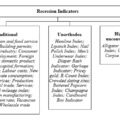The COVID-19 crisis (epidemic and economic crisis) provided a challenging time for European governments. Since the coronavirus reached the European continent and member states of the European Union, the position of the Hungarian government regarding the main issues and challenges of the European Union, however, has remained intact.
One the one hand, the Hungarian government still propagates the idea of “nations of Europe” emphasizing the importance of cooperation among members states instead of joint and community-level solutions. Although, the European Commission responded strikingly rapidly to help member states to fight against the health-related and economic impacts of the coronavirus. At the same time, it is worth mentioning that the Hungarian government’s ideas on European cooperation only operate in rhetoric (and domestic) level, in practice, they have implicitly followed the guidelines of the European institutions in recent months.
One the other hand, the Hungarian government showed limited solidarity, including financial solidarity, both at domestic and European level. This spring, the Ministry of Finance and Hungarian National Bank (HNB) equally underestimated the potential economic downturn related to the coronavirus crisis, official forecasts ranged between slight recession (-3% GDP growth for 2020) and sluggish growth (+2% GDP growth for 2020). Now, our knowledge suggests that the current economic crisis will probably be greater than the recession of the global financial crisis of 2008/2009, moreover, rapid recovery (V-shaped crisis) can also be ruled out. The underestimation of the current recession clearly manifested in the economic measures taken by the government during this April and May. [1] The primary objective of the Hungarian decision-makers was to keep the budgetary deficit at low level close to the Maastricht criteria. Initially, the restructuring of the budget has only minimally increased the expenditure of the Hungarian government compared to the previously planned deficit. We can now calculate with a much larger fiscal deficit. Main budgetary implications of the measures taken in response to the COVID-19 crisis [2]:
- Expenditures on disease control: the Hungarian government has limited domestic access to medical devices and equipment, including testing kits, medical masks, and respirators. Acquisitions of these resources took place under unclear circumstances.
- The Hungarian government, based on its rhetoric, considered the protection of jobs as top priority. One the one hand, they provided a Kurzarbeit-type wage subsidy to workers to ease the deteriorating financial situation of companies. Technically, the wage subsidy could have reached the 70% of the net wage, however, in practice the applied ceiling prevented workers from receiving proportional wages (due to the ceiling that should have applied under the Hungarian Kurzabeit, the maximum wage was roughly EUR 300). Moreover, it is worth highlighting that the government introduced an overly complex application system which deterred companies from engaging in the system. One the other hand, the Hungarian government initiated a secondary wage subsidy scheme for the workers (engineers) of research and development, 40% wage subsidy without upper limit. In summary, the Hungarian government provided limited solidarity towards the Hungarian workers by developing the least generous wage subsidy system in the entire European Union.
- Recovery plan for restarting the Hungarian economy. In general, the Hungarian government offered generous resources and tax reliefs (reducing the burden on employers and employees) for specific and domestically controlled sectors: agriculture, food processing, tourism, and hospitality. [3] Furthermore, self-employed workers also received specific tax reliefs.
- Finally, the Hungarian government levied extra tax on two sectors: the retail sector and the banking sector.
Crisis management has further strengthened the cooperation of the Hungarian government and HNB. The HNB has actively been engaged in the planning of the economic recovery, moreover, the monetary authority has initiated steps to help finance the economy. [4] Major steps of this cooperation:
- Measures affecting the Hungarian citizens: credit repayment moratorium, increase the limit of contactless credit card payments.
- Measures affecting the firms operating in Hungary:
- Providing liquidity for the SMEs, the HNB launched the “Funding for Growth Scheme Go!” with a volume of HUF 1,000 billion to complement the previous HUF 500 billion “Funding for Growth Scheme”.
- Providing liquidity of the corporate sector (large companies), the HNB allocated HUF 450 billion for the “Bond Funding for Growth Scheme”.
- Credit repayment moratorium for companies.
- Measures affecting the financial market: stability and predictability
In summary, the HNB is an active player in Hungary, however, both programs that provides liquidity (almost HUF 2,000 billion, EUR 5,7 billion) for companies from micro to large ones can be characterized by questionable and opaque decisions. [5] HNB has recently modified its forecast, declaring a recession for 2020. According to the latest Inflation Report, published in this September, the Hungarian economy will suffer a massive economic downturn, the Hungarian GDP will contract between 5.1 and 6.8 percent. [6] With this in mind, it is not surprising that the Hungarian government and the HNB are actively working on new measures to support economic recovery. [7]
The coronavirus epidemic and economic crisis provided an exceptional opportunity for the Hungarian government to exploit a better deal (threat of a veto) regarding the European “Recovery Fund” and the 2021-2027 MFF as a net beneficiary member state. This is in line with the government’s general mentality, namely maximizing the financial sources from the European Union and minimizing the costs of the European project. Since the Hungarian government (Fidesz) has total control over the distribution of EU funds, so securing a money stream for the future was a fundamental priority. This July, Prime Minister Orbán propagated a double win in Brussels; first, the net position of Hungary in terms of financial sources improved (more EU funds compared to the previous drafts), and second, the issue of the rule of law had been off the agenda for a while. These results can be surprising, principally if we take into consideration that according to the latest OLAF report, in 2019 the Hungarian government committed the most infringements in the use of EU funds.
Szijártó Norbert
[1] A second recovery package is currently under negotiation.
[2] Source: https://www.portfolio.hu/gazdasag/20200505/koronavirus-osszeallt-az-orban-kormany-mentocsomagja-itt-a-lista-430096
[3] These sectors are either entirely or partially controlled by Hungarian entrepreneurs with close ties to the governing party.
[4] Source: The webpage of the HNB; https://www.mnb.hu/koronavirus#
[5] Source: HNB (2020): Monetary policy instruments of the Magyar Nemzeti Bank during the COVID-19 crisis: liquidity, safety, flexibility. https://www.mnb.hu/letoltes/jegybanki-eszkoztar-2020-covid19-en.pdf
[6] Source: HNB (2020): Inflation Report – 2020 September. https://www.mnb.hu/letoltes/eng-ir-17.pdf
[7] Recently, the HNB has already published a list of its proposals to tackle the economic impacts of the coronavirus crisis. https://www.mnb.hu/letoltes/a-magyar-nemzeti-bank-50-javaslata.pdf






